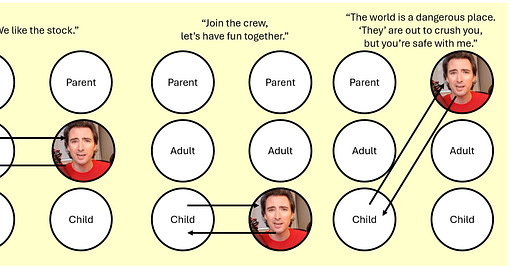Confident Communicators: What Roaring Kitty and Warren Buffett can teach us about the games we play
“Ever since I was a kid, I liked playing games. I don’t know a single great trader who doesn’t. If doing this was about the money, I would have quit a long time ago." — Paul Tudor Jones
This week, meme trader Keith Gill, aka Roaring Kitty, returned to the public. I was struck by how quickly traders piled back into GameStop even though the previous meme stock craze ended, predictably, with much gnashing of the teeth. Was this just an example of the gamification of everything or Ted Gioia’s dopamine culture? I think it’s more than that, an example of the unconscious games we play.
First, could it be rational? The company can raise capital at an inflated valuation and acquire or create value assets. Could this turn into a rare example of George Soros’s theory of reflexivity at work? I doubt it. Soros observed reflexivity in markets as a self-reinforcing phenomenon. An “imperfect understanding” by market participants changes fundamentals which feeds back and further increases the disconnect between value and price. But in this case, there is no misperception. Nobody cares about the fundamentals.
No, it seemed like a classic case of greater fool theory. The individual trader hopes to get on and off the train profitably, but in the end, someone holds the bag. But what if a public figure, a confident communicator representing ‘Smart Money’, makes people feel they have permission to play?



